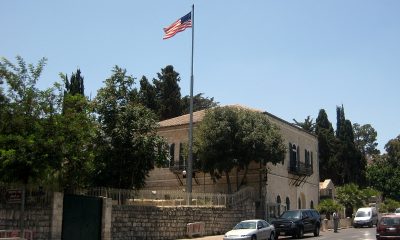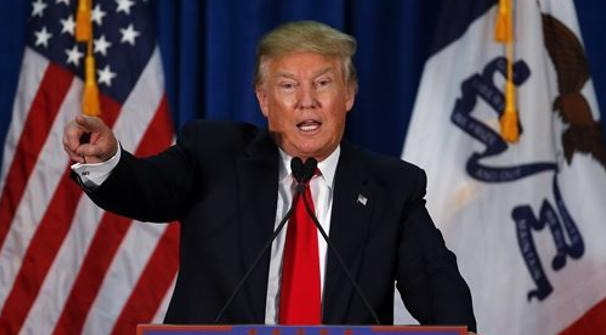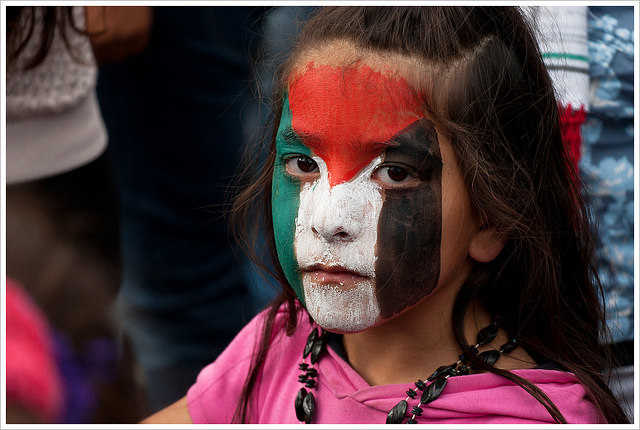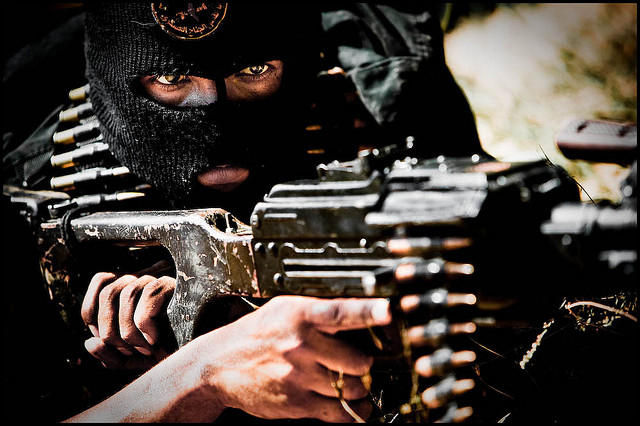Opinion
Power Struggle In Palestine

Based on the motive of wresting control of Palestine (now Israel) from Jews, an organisation on the lines of Algerian FLN named Harakat Tahirar Filastin- Palestine Liberation Movement or FATAH was formed under the leadership of Yaseer Arafat, Khalid al Hassan, Mahmoud Abbas which was later renamed as Palestine Liberation Committee was formed in 1957 in Gaza Strip.
After Israel starting implementing National Water Carrier Plan in the Sea of Galilee, Fatah declared it as an imperialist event and criticised Egypt for not taking any effective action against Israel and this provocation resulted in the establishment of Palestinian Liberation Organization as an alternative to Fatah with the same purpose of re-establishing of Undivided Palestine. On the backdrop of it, Syria emerged as a hero in Arab world after initiating covert operations under Syrian army intelligence supporting terrorist and attacks started taking place in Israel which eventually led to 1967’s Six day war.
Eventually after the humiliating defeat of Arabs, Yaseer Arafat took the reins of both PLO and FATAH is his hand and PLO got recognition by all Arab states and later by UN as a representative of Palestinian people. Soon after the implementation of “Land of Peace” proposal by UNSC in 1967, Yaseer Arafat died and gave way to Anwar Sadat. Anwar Sadat made an offer to Israel to negotiate a settlement for the lands occupied which was rejected by Israel further resulting in 6 October’s Yom Kippur War, where also Israel won against Arabs.
In 1978, Sadat (Egyptian President) and Menahem Benin (Israel President) signed Camp David framework agreement and Egypt became the first country to recognize Israel while other countries including Iran, Syria, Libya and Lebanon has still not recognized Israel as a country. This led to PLO moving its base to Jordan in 1970 but owing the increasing numbers of refugees, it was expelled to Lebanon, a Christian dominated area. Christians got in trouble due to increase in numbers of Palestinian refugees in the country because of shifting of base of PLO. This led to the Civil War of 1975 ignited with the attack by Christian Phalangist militias on a bus as they were scared that if the number of refugees keeps of increasing then they will become a minority in their own country which resulted again in the expulsion of PLO from Jordan.
With the US pressure (due to ongoing Gulf War) and dissolution of USSR further weakening the authority of PLO, Oslo Declaration was signed among both the parties resulting in the evacuation of Israeli troops from West Bank and Gaza. In the backdrop, another organization under Ismail Haniya started gaining control in the area beginning attacks on Israel in April 1994.
However with 9/11 attacks on US World Trade Center, terrorist organizations like Hamas and Hizbulla were started to be linked with Al Qaeda group. In 2006, Hamas won over FATAH while in broader terms Mahmoud Abbas remained the President. American and European leaders pledged not to negotiate with Hamas due to its terrorist’s background until Hamas disarm themselves and recognize Israel. International community except Iran and Russia suspended aid to Hamas led PNA government leading to an acute financial crisis in Palestine.
With Hamas led government terrorist organizations started gaining control in Gaza strip, the first of few attacks being series of rocket launch by Hezbollah terrorists killing three and attacking 2 Israeli soldiers. In the meantime during Annapolis Conference in November 2007 UN, GCC, EU, Russia and other countries recognized Mohmoud Abbas as the leader of Palestine and agreed on permanent status agreement to implement road map to peace. This led to even more attacks by Hamas from Gaza strip to which Israel announced unilateral ceasefire in 2009. Hamas laid the condition of withdrawing Israel’s troops from the Gaza strip which resulted in strengthening of Hamas in the region. With the two power axis in the Palestine itself, the situation got worse with Fatah Hamas conflict and Hamas started attacking Egyptian regions as well while Egypt with the liberation had planned to bring Gaza strip in its fold.
Failure of talks on Palestine forced Abbas to step down from the leadership of Palestinian movement. Arab Spring led to destabilization of the whole Middle East giving Hamas a head on with its terrorist activities. Despite various agreements between Hamas and Fatah, there was no breakthrough while attacks on Israel continue to happen.
This two power axis within the Palestine has resulted in chaos. Whenever some peace plans are initiated by Fatah, Hamas disrupts the process by either attacking Fatah’s region or Israel making the situation more complex as it feels Fatah has become moderate in its approach.
This “tit for tat” technique has killed thousands of people and violence in the areas has created Palestinian refugees burdening the economies of neighboring countries initiating the feeling of dissent among them. The very essence of Palestinian nationalism has seem to be lost with the power struggle within themselves resulting in the stalemate of this century old conflict.
China
Nepal Hindu Rashtra: Time to Wrap Up Communism?

Nepal abolished the Constitutional Monarchy in May 2008 and declared itself as a Federal Democratic Republic. There was a new hope in Nepal as it was becoming world’s newest democracy even though it had dissolved the Hindu Rashtra. However, the democracy in Nepal immediately got into the tight grips of leftists and communists backed by China. It has been almost 12 years since monarchy was abolished in Nepal. Interestingly, the Himalayan country has already seen 11 Prime Ministers in this period. Thus, leaving the Nepalese people still yearning for good and stable governance.
Re-establish Hindu Rashtra
As the political instability is growing in Nepal, people are demonstrating concerns about the future of the country. In fact, Nepalese citizens are unhappy with frequent interference by China and India influencing its unstable communist regime. More voices are now growing in support of reinstating the Monarchy and declaring Nepal as world’s only Hindu Rashtra (which by default offers full religious freedom to other religious minorities as per Hindutva concept of Sarva Dharma Sama Bhava – all paths lead to one).
Former Deputy Prime Minister of Nepal, Kamal Thapa said that if political parties do not recognize the seriousness of reinstating the monarchy, then the country will head for a period of darkness. “Recently, we’ve had high-ranking officials from India and China come to Nepal to try and solve problems within the ruling party,” he said. “We cannot let others dictate what we want to do.”
Communist Party All Set to Suppress Protests, By Force
Kamal Thapa has firmly demanded an all party meet to discuss reinstating of monarchy. Throughout the month of December, 2020 Nepal has seen anti communism protests across the country in support of reinstating the monarchy and Hindu Rashtra. Most importantly, the demand has become a nationwide mass people’s movement. So much so that the communist regime had to send a directive to 77 districts in 7 provinces. The directive suggests suppressing the protests by force. Nevertheless, Rashtriya Prajatantra Party and other royalist groups have ignored this threat from the communist regime. Protester groups have pledged to strengthen the protest in the coming weeks.
Nepal: Demonstration held in capital Kathmandu, demanding restoration of monarchy in the country. pic.twitter.com/TFjmKu9U9Z
— ANI (@ANI) December 5, 2020
Role of China – Hope for Communism in Nepal
China’s ambassador to Nepal is known to have very close relationship with Nepalese Communist regime. In fact, She has been super effective in tilting Nepal’s posture towards its ideological partner, China. One of her greatest achievements in 2020 was artificially manufacturing a border conflict between Nepal and India. Consequently, souring relations between the two Hindu majority nations. In addition, she managed to silence Nepal’s communist government after China took one of Nepal’s border villages under its control. However, recent political turmoil in Nepal and a renewed demand for reinstating of Hindu Monarchy is showing that the situation is now out of Chinese hands
Role of India
Year 2020, was not a good year for India and Nepal relations. India was busy in controlling domestic Covid cases. On the other hand, China had launched an invasive campaign into Indian territory. In addition, India is always busy with Pakistan on its western borders. However, the surprise came to India when China was almost successful in creating a new border tension between India and Nepal.
Those who do not know about Indian government should note that the current ruling party in India finds itself ideologically opposite to communism. This further creates differences between the two countries.
Communist party in Nepal has blamed India for supporting the ongoing anti communism protests in Nepal. However, former advisor to Nepal’s PM has suggested there is no proof that India is fueling pro Monarchy, anti communism demand in Nepal.
Nevertheless, There are certain influencers in India who have, in their personal capacity, expressed support for reinstating the Hindu monarchy. Yogi Adityanath, who is the Chief Minister of an Indian state bordering Nepal, said in 2015 that Nepal should declare itself a Hindu Monarchy. Readers should note that in 2015 Yogi Adityanath was not the Chief Minister yet. However, today he is not only popular in south of Nepal, his popularity is growing in Nepal as well.
Will The World See the first Hindu Rashtra?
It is difficult to answer this question at this moment. However, Nepalese communist government could not resolve the political instability and in December 2020 Nepalese government dissolved the parliament. Nepal will see next elections in April – May 2021. Hopefully, the world will see Nepal’s 12th Prime Minister in 13 years or may be a Hindu King? Royalists and protester groups have expressed confidence in winning next elections. We have our eyes on Nepal for updates.
Opinion
America’s Justice System – The Need For Reform
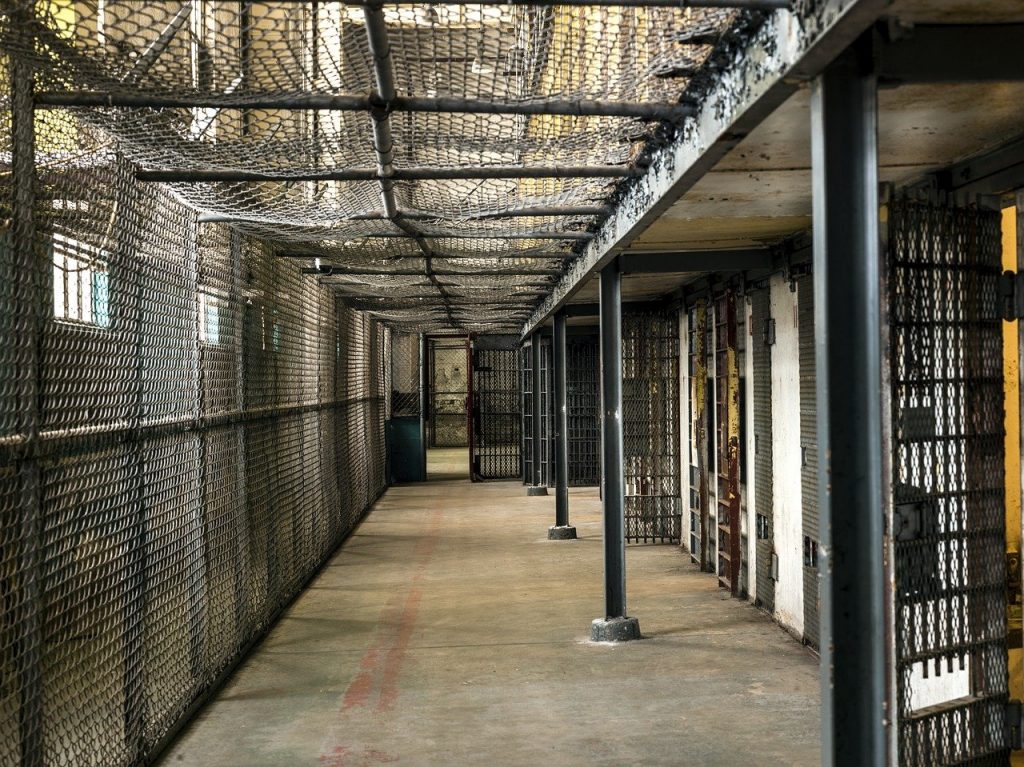
A recent poll by the National Opinion Research Centre revealed that 95% of Americans favour vital criminal justice reforms. This is hardly surprising, given that several people of varying racial, partisan and ideological dispositions have called out the justice system over its many failures throughout the years. Most Americans received the Trump Administration’s First Step Act as a step in the right direction, as about 60% of people approved the criminal justice reform bill according to a 2018 poll. However, many people still believe the justice system’s approach to crime is ineffective and needs dire change, and these are some reasons why.
Prison population and funding concerns
Research conducted revealed America has about 2.3 million prisoners, making the US the country with the highest incarceration rate globally. Experts estimate that the country’s prison population has grown by a whopping 340% over the past three decades; new prisoner admissions into jails are higher than prisoner release numbers. The cost of maintaining the nation’s prisons at taxpayers’ expense has inspired a lot of backlash and calls for budget cuts. According to research, slashed correction spending was the preferred option by most states to balance their budgets and redirect spending to other areas.
Minimum mandatory sentences
Minimum mandatory sentences are statutes that force judges to give defendants convicted of a crime the minimum prison sentence. Mandatory sentences rob judges of the traditional way of considering the defendant’s character and the unique circumstances surrounding offences. Even when represented by criminal defense attorneys with many years’ experience, defendants often succumb to prosecutors’ pressure to plead guilty or face more severe charges with higher mandatory sentences. The guilty plea bargain consequently resolves about 95% of both federal and state court cases. Research also shows that about half of inmates in federal prisons are doing time for drug offences- causing overpopulation in the prison system.
Growing number of people killed by the police
An estimated 1000 civilians are killed by police officers annually in the US. The frequency of police brutality cases over the years requires immediate reform to the American justice system. Data suggests that the incidence of fatal police shootings is higher among African-Americans than any other ethnicity, inspiring movements like the ‘Black Lives Matter’ campaign to press on with protests for significant police etiquette reforms towards coloured minorities. The police force faces incessant accusations of racial profiling, indiscriminate use of power, and poor discretion, which has led a reported 58% of Americans to think policing needs major reforms through measures like better-trained officers, and wearing body cameras.
Evolving public opinion on crime
Research released by the Sentencing Project and The Justice Policy Institute reveals that more people in conservative states are embracing preventive, rehabilitative, and alternative sentencing options for non-violent offenders. Most Americans now view the prevention of crime as the most vital function of the justice system, as 77% of Americans think that focusing more on character education and after-school programs would be cost-effective by reducing the number of people going to jail. Almost two-thirds of Americans also believe in the need for lighter sentences with more useful, reformative programs in prisons that will benefit inmates upon release. Therefore, support for harsh penalties that harden criminals and make them a more significant menace when reintroduced into society has dwindled.
Opinion
The History Question: Is It Better to Remember or to Forget?
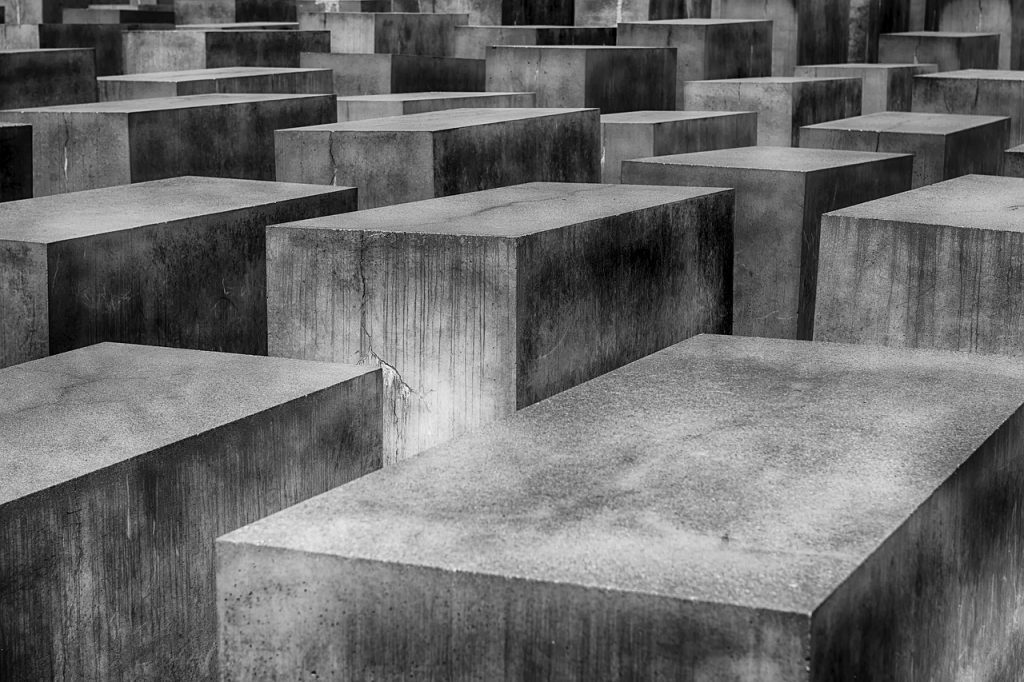
Years ago, a philosopher by the name of George Santayana said a phrase that fuels many debates to this day. His original saying is “those who cannot remember the past are condemned to repeat it”, although, many sources now present it as variations of “those who cannot learn from history are doomed to repeat it”. The latter definitely has more substance to it in the light of the ongoing debate about how much history we should be learning and how.
Is It Better to Remember or Forget About the Past?
On one hand, Santayana was right. Learning about the past is essential in order for people to progress. One also shouldn’t overlook the importance of remembrance and paying respects to the dead, both those who pushed the progress forward and those who have fallen victims to major tragedies that could and should have been averted.
The main argument in favor of learning about the past is that its knowledge is necessary for preventing the same thing happening in the future. Having it one can see the signs and stop the tragedy before it gains momentum.
That’s sound in theory, but the reality is always different. For example, today people are surely forgetting, and the much-critiqued education system is only partially at fault here. Even the greatest of tragedies weren’t spared this fate. It’s a proven fact that about two-thirds of millennials today don’t know about the Holocaust, and this number is surely greater for generations that follow them. In the school history course, the subject of one of the greatest disasters in history is barely touched, if touched at all. And outside of a history classroom, one can only see small, but terrifying, glimpses of it at the Holocaust Museum and other museums that rarely attract many visitors. And now we are witnessing a rise of antisemitic crime.
Are these two facts related? Does the lack of awareness about the horrors done in the name of Aryan supremacy contribute to the fact that right-winged extremists seem to be gaining popularity again?
It does, but by how much? That is the question that no one can truly answer.
And what about other genocides? The Holocaust had the highest death toll, but it was far from the only genocide in history. And quite a few of those happened after World War 2 and before the memory of the atrocities against the Jews began to fade. This means that while forgetting history is a factor, it’s not the deciding factor in its repeats.
But what is that thing responsible for the reenactment of past mistakes and tragedies?
Learning. This is the important thing that is most often overlooked when citing Santayana’s famous saying. It’s not enough to learn about the past and know the facts of things that happened. It’s important to learn from those facts and put in place protections that will prevent them from happening again. And this is something that humanity, as a whole, has yet to succeed in doing.
Dwelling in the Past Can Be Just As Bad
One also shouldn’t forget that there is such a thing as “too much history”. The Bosnian War and genocide that happened there in the 1990s is a vivid example of how the past can be exploited by political powers. Used as a part of propaganda, which fueled the war, history can become a weapon in the hands of those who want to use it for their own goals.
And this is what humans have been doing since the dawn of time. There is always someone who will use any means necessary to achieve whatever it is they wish. This results in wars and genocides, and hundreds of smaller but no less devastating tragedies.
Therefore, the problem isn’t whether people should be learning history but human nature itself. Perhaps, teaching this can help fix this fundamental flaw and truly stop the worst of the past from repeating.
-

 Blog Management12 months ago
Blog Management12 months agoWhat Is Your Website Content Missing? Three Things To Add ASAP
-

 Business9 months ago
Business9 months agoLearn English quickly and effectively with the Callan Method
-

 Sports10 months ago
Sports10 months agoA-Champs Reaction Training Lights: Your Path to Soccer Excellence
-
Travel10 months ago
Discovering Valencia and the Valencian Community: an unforgettable holiday experience
-

 Travel9 months ago
Travel9 months agoDiscover the finest tours across Morocco: an adventure oasis
-

 Sports9 months ago
Sports9 months agoBody Armor Plates – Essential Considerations for Selecting the Right Protection
-

 Travel7 months ago
Travel7 months agoImmerse Yourself in Nature: Explore Forest Bathing with a New Guidebook
-

 Europe7 months ago
Europe7 months agoBarcelona and Athens: cities that will leave an everlasting impression


